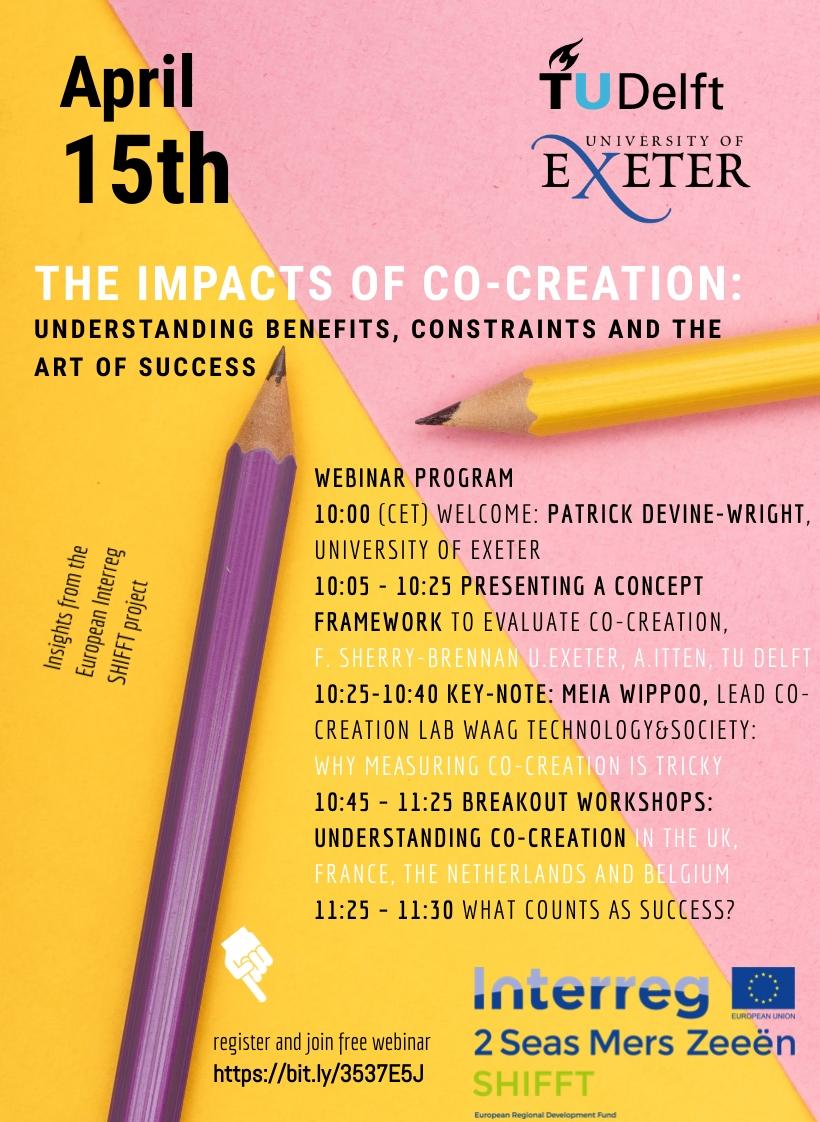There is much potential for co-creation approaches with active residents and energy communities to move away from coal, gas and oil. But what counts as success? Because co-creation is a non-linear method, establishing monitoring and evaluation is essential. Patrick Devine-Wright from the University of Exeter will introduce this webinar and highlight why the impact of co-creation is so crucial.
Drawing from insights of the European SHIFFT project on sustainable heating, Fionnguala Sherry-Brennan from the University of Exeter and Anatol Itten from Delft University of Technology will then present a concept framework to evaluate co-creation. Analysing features of co-creation (what happened when, who was involved, challenges experienced) can provide feedback what changes may be needed, and reveal why outcomes were or were not achieved.
Meia Wippoo, lead Co-creation Lab at Waag, will respond why measuring co-creation is tricky, and how pitfalls can be avoided. The workshop then dives into evaluating European co-creation pilots more practically, from examples in Norwich, Bruges, Mechelen, Fourmies, Hauts-de-France and Middelburg and seeks to uncover how understandings of co-creation vary amongst different territories, cultures and cities.
